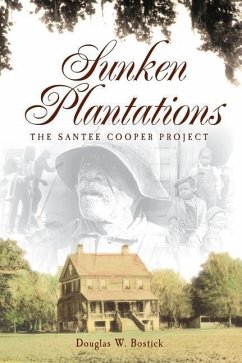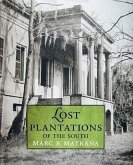South Carolinians have long desired a route for water navigation from Columbia to Charleston. An early Santee Canal effort ended in failure by 1850, but interest was reignited in the twentieth century. Roosevelt and his New Deal provided the necessary hydroelectric power and a boost to the state s economy through the funding of a navigable route utilizing the Congaree, Santee and Cooper Rivers. This ambitious undertaking would become the largest land-clearing project in the history of the United States, requiring the purchase of more than 177,000 acres. Today, the remains of more than twenty historic plantations rest beneath the waters of Lake Marion and Lake Moultrie, and Charleston historian Douglas Bostick raises them from the depths in this haunting visual journey.
Hinweis: Dieser Artikel kann nur an eine deutsche Lieferadresse ausgeliefert werden.
Hinweis: Dieser Artikel kann nur an eine deutsche Lieferadresse ausgeliefert werden.








